|
|
| Participants |
| From D to K |
|
|
DEARNALEY William |
Lancaster University - United Kingdom |
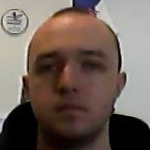 |
|
I am working on CP violation with the Bs->J/Psi Phi decay channel in
CERNs ATLAS detector to measure the CP-violating weak phase Phi_s and
the decay width difference Delta lamda_s. Within this team I am
responsible for much of the trigger based analysis. I am familiar with
Windows (XP and 7), Linux (Ubuntu 10.10 being my preference), and I have
some experience using Mac OS X. I use C++ and ROOT extensively every day
for work, and I have used some python programming tools. I also took two
courses in Java (one being optional), after which I continued coding in
my free time for pleasure. |
|
| |
|
DELORT Charles |
CERN, Geneva -
Switzerland |
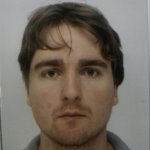 |
|
I am a French computer scientist currently working at CERN. I have a PhD
in computer science, obtained in 2011 from Paris 6 University, France.
The main focus of my thesis was on multi-objective combinatorial
optimization. I work for the ALICE data acquisition team, where I am
developing a simulation of the data flow for the upgrade of the
experiment that will be implemented in LS2 (2018). I am currently doing
an overview of simulation tools that will be used by a working group to
create the simulation by the end of the year. I am familiar with Linux
and Windows environments and comfortable using C/C++, Java, Python, and
other programming languages. |
|
| |
|
DESCOMBES Thierry |
LPSC / IN2P3, Grenoble
- France |
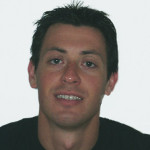 |
|
Current work as: Software object architect, Project
Developer
for physics experiments, distributed applications
development,
IT engineer, IT support, network security expert. Familiar OS: Linux /
Windows / Android Familiar language: asm / C / C++ / Java / Shell(PHP,
bash, awk/sed, ...) / UML / SQL |
|
| |
|
DORLAND Tyler |
DESY, Hamburg - Germany |
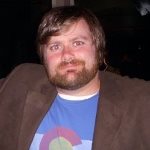 |
|
My first exposure to working with computers came from blowing into the
cartridge of my Nintendo back in 1989. A few years later I had upgraded
and was learning the intricacies of my 486 I spent all summer saving
for. Since then, I have fiddled around with careers in music, football,
and ultimate, but I have always had a computer at my side. I graduated
from the University of Colorado with degrees in physics and saxophone
performance (BA,BM). I continued my studies in physics at the University
of Notre Dame (M.Sc.), and finished them at the University of Washington
where I defended my search for the associated production of a vector and
Higgs Boson, research conducted as a member of the D-Zero collaboration,
as my doctoral thesis. Now I am a fellow at DESY working on the CMS
experiment in Top quark studies and hardware upgrades. As always, my
trusty computer aids me at every step, I am looking forward to learning
more about it! |
|
| |
|
EHRHART Sebastian |
Goethe University of Frankfurt am Main -
Germany |
 |
|
I studied chemistry and technically I am a chemical engineer, although
my diploma thesis deals with theoretical and computational chemistry.
That means I feel more at home in physical chemistry. For my PhD I
switched to atmospheric chemistry and physics and worked on the
influence of cosmic rays on the climate. Therefore I work in the CERN
CLOUD project, where I started my Marie Curie Fellowship and will work
on modelling processes in the CLOUD chamber. For this I worked so far
mainly with Perl, Fortran (I prefer the newer versions), R and various
other scripting and programming languages. |
|
| |
|
ERNIS Gunar |
Bergische Universität,
Wuppertal - Germany |
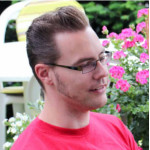 |
|
I am a PhD student in my second year and I am working within the Higgs
searching group of the ATLAS experiment. My current research topic is
the analysis of the so called two Higgs doublet model (2HDM), which is a
very general extension of the standard model. The model proposes five
different Higgs bosons, where two of them are "standard model-like" but
have different coupling strengths. Assuming, that the scalar boson which
was discovered last year, is one of the scalar Higgses in the 2HDM, I am
looking for another Higgs boson in the high mass region. In order to do
so, our group uses an analysis framework written in C++ and Python,
which runs on Linux machines. |
|
| |
|
FIORINI Benjamin |
CERN, Geneva -
Switzerland |
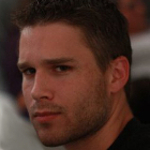 |
|
After studying software engineering in Marseille, France, I have been
working in the IT department at CERN for one year and a half. Firstly, I
worked as technical student in the Data Storage and Services group for
the CASTOR developers’ team. Currently fellow in the Computing
Facilities group, I am developer in the team responsible for the
monitoring tools of CERN's computer centers. My interests are mainly
distributed systems and operating systems, and I am often working with
Python, Java or Ruby, on Linux systems. Outside of work, my life
revolves around rock climbing, skiing, running, hiking and last but not
least music. |
|
| |
|
GOUVEIA Vítor |
CERN, Geneva -
Switzerland |
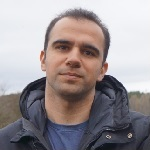 |
|
I studied computer science at “Universidade Nova de Lisboa”, Lisbon,
where I obtained the MSc in 2008. During the MSc time I had the
opportunity to teach Java and C language at the University. After my
graduation, and before applying to CERN, I worked for a Portuguese
company during one year and half. He had an important role in the
development of a content management system of the company. During this
period I improved my skills as web developer and worked with several web
technologies. I applied for the CERN’s trainee program in 2010 and
arrived at CERN on 1st of February of 2011. During my trainee I had the
opportunity to administrate an IT large infrastructure. In 2012 I
started his fellowship and currently am working in the Agile
Infrastructure project for the IT department. My professional interests
include cloud computing, software development and project management. |
|
| |
|
HAHNE Daniel |
Rheinische Friedrich-Wilhelms-Universität Bonn -
Germany |
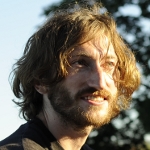 |
|
I was born in 1982 and since my childhood I am fascinated by computers
and machines and want to know how things work. After too many years of
school and my civilian service I studied two semesters electrical
engineering and then eventually switched to physics where I got my
diploma in 2011. Now I am part of the COMPASS collaboration where I
mainly work on the parametrization of fragmentation functions. |
|
| |
|
HAMMER Josef |
CERN, Geneva -
Switzerland |
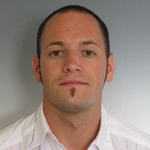 |
|
After working as a computer scientist for the CMS L1-Trigger for several
years, I joined PH-CMG-CO last September. My task is to take over all
the iCMS tools from Dirk Samyn. These tools include the CMS Analysis DB
(CADI), the CMS Notes DB, the ESP tools, and plenty of other tools for
the CMS management and secretariat. Currently, these web tools are
written in Java/JSP, and my goal is to move them to Python. Furthermore,
I am familiar with a variety of programming languages, including C++ and
Javascript, and I am working on Linux and Windows. |
|
| |
|
HEIKKILA Seppo |
CERN, Geneva -
Switzerland |
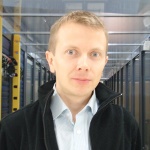 |
|
I started as a fellow in the CERN openlab and the IT Data Storage and
Services (DSS) group on March 2013. I am currently evaluating
performance of Huawei's cloud storage system and integrating it with
existing CERN services. I came to CERN in 2012 to work with secure
multi-cloud storage software in the Helsinki Institute of Physics (HIP)
after finishing my Ph.D. on automation technology in a joint-project
with European Space Agency (ESA) and Aalto University. Most of the time
I have been doing software development in GNU/Linux with C/C++ or Java.
I have also used Python, PHP, Perl, shell scripts, SQL, and
Matlab/Octave for several years. |
|
| |
|
IERI Andrea |
CERN, Geneva -
Switzerland |
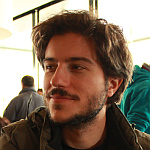 |
|
My first contact with CERN was in 2011, when I worked as a summer
student with the DB group and was involved in rewriting the software
that distributed SSH keys among the Oracle clusters. After that I was
hired to work in an account management project in Milan as a security
consultant for H3G, the third Italian telco. I returned to CERN in 2012
with a fellowship and started collaborating with the storage team,
evaluating the feasibility of adding secure authentication to the CASTOR
nameserver and subsequently carrying out the actual transition. These
days all my efforts are devoted towards the puppetization of our storage
clusters, in order to redefine our workflows and exploit the new tools
offered by the agile infrastructure. I received my BSc from the
University of Milano - Bicocca with a thesis on the security analysis of
IDEM, the main Italian AAI. I am now studying towards a Master in
Advanced Security and Digital Forensics at Napier University. |
|
| |
|
JIMÉNEZ ESTUPIÑÁN Raúl |
CERN, Geneva -
Switzerland |
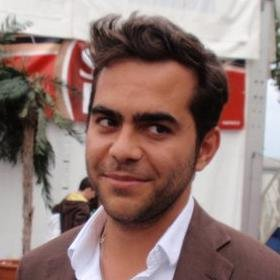 |
|
I finished my studies in Technical System Engineering and worked in
Business Intelligence field for few years. Afterwards, I retook my
studies in Computer Engineering and came to CERN as Openlab Summer
student to work focused on improving the existing security configuration
and policy for Oracle databases. Soon I started as Technical Student
working for CMS on a configuration database tool for High Level Trigger.
Currently I am working at CERN for CMS central DCS team in maintaining
and evolving the detector control system. Among other things I
participate in the running of the system and software developments
related to system upgrades. I am interested in learning and knowing
every aspect of CMS detector control system, to help and contribute as
much as possible to my team and CERN labour. In the personal aspect, I
really love talking to people, traveling and learning new things, and
discussing about any topic! |
|
| |
|
KADOCHNIKOV Ivan |
JINR, Dubna -
Russia |
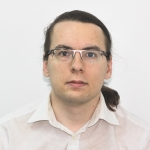 |
|
I have always been interested in both physics and computer science. As I
enrolled in Moscow Institute for Physics and Technology (MIPT) I
sometimes dreamed of being able to simulate a macroscopic object from
the quark level up. Another topic I am very interested in is machine
learning. As part of getting my degree I studied and worked at Joint
Institute for Nuclear Research (JINR). After graduating in 2011 I
continued working at JINR and started my PhD there. At the same time I
shifted focus from physics to IT. Most of my work done at JINR is
related to WLCG, CERN and monitoring. I took part in Tier3 monitoring,
XRootD federation monitoring and data transfer monitoring projects.
Right now I am involved in an effort to integrate HBase and Hadoop as a
Dashboard back-end and use it for data transfer monitoring. |
|
| |
|
KHANDANYAN Hovhannes |
Stockholm University -
Sweden |
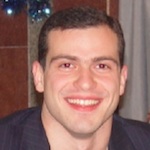 |
|
I am a co-developer of TopRootCore infrastructure for ATLAS Top WG. A
strong sign of success for TopRootCore is continuous increase of number
of user university groups that currently include 20+ research teams.
Hence, increasing user base of the analysis framework urges for the need
to continuously improve the performance of existing tools, while
implementing novel solutions to meet growing demands of increasingly
more sophisticated LHC analyses. For this reason 70-80% of my time is
dedicated to solving various computing challenges encountered by
TopRootCore. I hope that CSC will further boost my background and help
to take my knowledge to the next level which then will be converted to a
benefit for many. |
|
| |
|
KUCHARCZYK Katarzyna |
CERN, Geneva -
Switzerland |
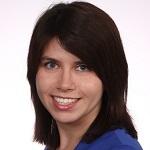 |
|
I am a student of Computer Science at the Warsaw University of
Technology. My bachelor thesis was focused on an intelligent mechanism
of a strategy selection in a multi-agent simulation of a commodity
market. Currently, I work as a technical student in the Information
Technology (IT) department, Support for Distributed Computing (SDC)
group at CERN. My main task is developing, testing and deploying
Workload Management Systems for LHC experiments on commercial and public
cloud providers. Before coming to CERN, I worked as a web developer. I
designed, developed and deployed Web Services in various Internet
technologies using the Spring and Grails Frameworks. Personally I am
interested in distributed systems and artificial intelligence. In
addition, I am familiar with Java, Bash, Python languages and I have
some experience in Perl, C and C++. |
|
| |
|
KUNZE Jonas |
Johannes Gutenberg Universität Mainz - Germany |
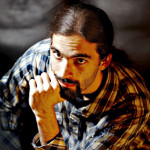 |
|
I am a German Physicist and PhD student working for the NA62 Experiment
at CERN and as Linux administrator at Mainz, Germany. During my diploma
thesis I have developed the PC-Farm and software framework for the
online trigger of NA62. Through this work I have become an expert in
network and parallel programming and my thesis has been honored with an
award. Within my current work I am analyzing the feasibility of using
commodity processors within low-level triggers at high-energy physics
experiments like NA62, LHCb and ATLAS. Using processors enables it to
use general-purpose programming languages like C++ for low-level trigger
algorithms instead of hardware description languages like VHDL. This
would facilitate the handling of low-level triggers and potentially
reduce acquisition costs. Privately I have developed the social network
www.metalcon.de which has become the biggest German database concerning
heavy metal music. |
|
| |
|
|
